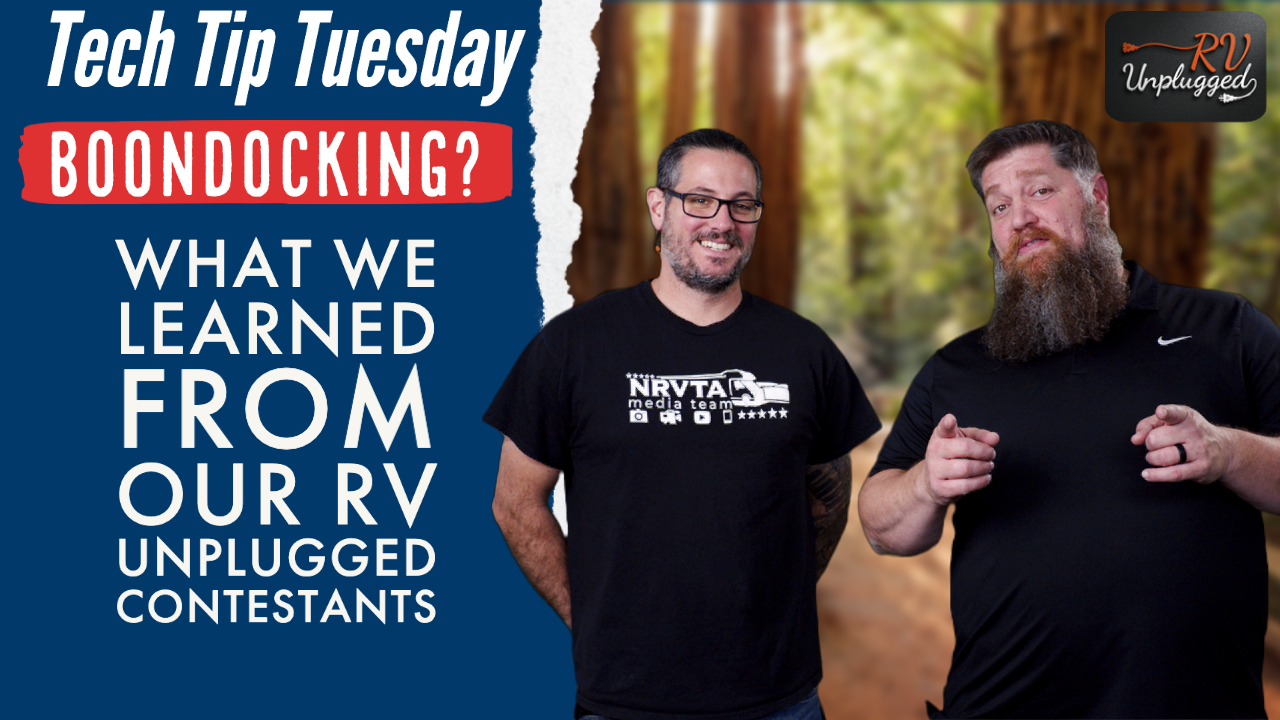Get your RV Technician Certification in as little as 5 weeks!

Welcome to another one of Todd’s Tech Tip Tuesdays, brought to you by the National RV Training Academy, the largest hands-on RV training academy in America! We’re excited to share with you some valuable tips we learned from RV Unplugged Season 1, Episode 1.
Have you ever considered going off-grid or unplugged? Ryan, one of the contestants, showed up on the show without a generator, inverter, or any power source other than a single battery, powering a 40-foot fifth wheel. While some may think that they can rely solely on their water and battery power, Ryan quickly realized that even with a single battery, he could only run his lights and fans for a limited amount of time before the battery drained. So how can you estimate your battery life? Let us break it down for you.
Manufacturers usually provide a 100 amp hour battery at 12 volts. By calculating the amp draw of each device, such as lights and fans, you can determine how long your battery can last. However, with lead-acid batteries, it is crucial to remember not to drain them below 50%. If you do, the voltage drops below 12, and your motors have to work harder to draw amps, causing potential problems. Therefore, even though you may have a 100 amp hour battery, you’ll only get about 50 hours of use.
One contestant, Ryan, had to get creative with his power source and conserved his water usage by washing dishes in a bucket. He then used that “grey” water to flush his toilet instead of using fresh water from his tank. Another contestant, Caitlyn and Howard, had a full system and used their generator during the day while conserving energy at night.
The key takeaway is that if you’re interested in off-grid RV living, it’s essential to plan and prepare for your trip accordingly. While some may enjoy the comforts of RV parks, others may prefer exploring BLM land or conserving fuel. With the tips we’ve shared, you’re now one step closer to enjoying the great outdoors without sacrificing the essential comforts of home.
Watch the video for more tips!
Are you interested in becoming an RV Technician and/or Inspector? Click here to contact a Student Advisor.
Get Registered Today!
Talk to a student advisor to learn more!
